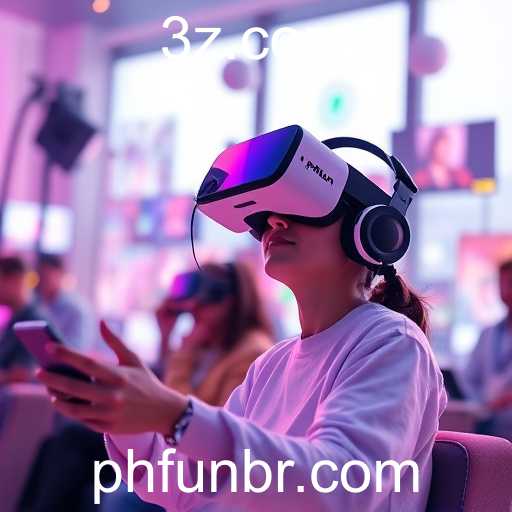As the world continues to embrace digital transformation, 2025 marks a significant year for the rise of virtual experiences across various sectors. From entertainment to education, virtual reality (VR) technology is playing a crucial role in reshaping how we engage with content and each other.
In the entertainment industry, VR platforms like 'phfun' have gained immense popularity, offering users immersive experiences that transcend traditional media. These platforms allow individuals to explore virtual worlds, attend concerts, and participate in events from the comfort of their homes. The ability to interact with content in a more lifelike manner has attracted millions of users globally, further solidifying VR's place in modern entertainment.
Education is another sector experiencing a transformation, with virtual learning environments becoming increasingly prevalent. Schools and universities are leveraging VR to create realistic simulations that enhance learning experiences. Students can now explore historical landmarks, conduct scientific experiments, and engage in interactive learning without geographical limitations. This is revolutionizing the way educators approach teaching and how students absorb information.
However, the rapid adoption of virtual experiences is not without challenges. Privacy concerns and digital equity remain significant issues as technology continues to advance. Ensuring that these novel platforms are accessible to all, while safeguarding user data, is critical for sustainable growth in this field.
The dynamic nature of technology in 2025 highlights the endless possibilities that virtual experiences bring to both entertainment and education. As VR technology evolves, it promises to create more innovative ways for people to connect, learn, and have fun across the globe.








